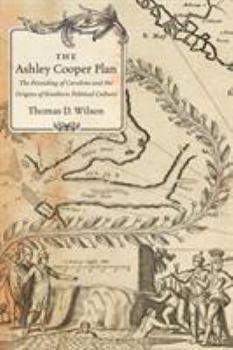The Ashley Cooper Plan: The Founding of Carolina and the Origins of Southern Political Culture
Select Format
Select Condition 
Book Overview
In this highly original work, Thomas D. Wilson offers surprising new insights into the origins of the political storms we witness today. Wilson connects the Ashley Cooper Plan -- a seventeenth-century model for a well-ordered society imagined by Anthony Ashley Cooper (1st Earl of Shaftesbury) and his prot g John Locke -- to current debates about views on climate change, sustainable development, urbanism, and professional expertise in general. In doing so, he examines the ways that the city design, political culture, ideology, and governing structures of the Province of Carolina have shaped political acts and public policy even in the present. Wilson identifies one of the fundamental paradoxes of American history: although Ashley Cooper and Locke based their model of rational planning on assumptions of equality, the lure of profits to be had from slaveholding soon undermined its utopian qualities. Wilson argues that in the transition to a slave society, the "Gothic" framework of the Carolina Fundamental Constitutions was stripped of its original imperative of class reciprocity, reverberating in American politics to this day.
Reflecting on contemporary culture, Wilson argues that the nation's urban-rural divide rooted in this earlier period has corrosively influenced American character, pitting one demographic segment against another. While illuminating the political philosophies of Ashley Cooper and Locke as they relate to cities, Wilson also provides those currently under attack by antiurbanists -- from city planners to climate scientists -- with a deeper understanding of the intellectual origins of a divided America and the long history that reinforces it.
Reflecting on contemporary culture, Wilson argues that the nation's urban-rural divide rooted in this earlier period has corrosively influenced American character, pitting one demographic segment against another. While illuminating the political philosophies of Ashley Cooper and Locke as they relate to cities, Wilson also provides those currently under attack by antiurbanists -- from city planners to climate scientists -- with a deeper understanding of the intellectual origins of a divided America and the long history that reinforces it.
Format:Paperback
Language:English
ISBN:1469626284
ISBN13:9781469626284
Release Date:March 2016
Publisher:University of North Carolina Press
Length:320 Pages
Weight:1.05 lbs.
Dimensions:0.8" x 6.3" x 9.2"
Customer Reviews
0 rating





